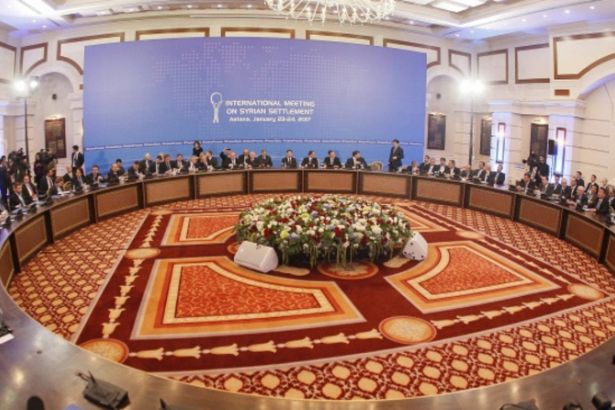Russia, Iran and Turkey to deploy observers around Syria's Idlib

All three ceasefire guarantor states - Russia, Iran and Turkey – on Friday agreed on the final fourth de-escalation zone in Syria’s northern Idlib province, and will deploy observer units to monitor the zone in the province.
"I would not say that there were contradictions on this issue ... In Idlib area along the contact line the observer units of all three guarantor states - Russia, Turkey, Iran - will be deployed. The mechanism and specific locations will be determined by the agreement between all three guarantor states," Alexander Lavrentyev, the head of the Russian delegation to the Astana talks, told reporters when asked who would monitor the de-escalation zone in Idlib.
Turkey, which opposes the Syrian government, and Syria's allies Russia and Iran agreed in May to set four "de-escalation zones" in the terrorist-held territory around Syria. However, the three states had struggled to agree on the details of the final zone around Idlib on the border with Turkey.
In a joint statement after two days of talks in Kazakhstan, the three powers said they agreed "to allocate" their forces to patrol the zone covering Idlib province and parts of the neighbouring Latakia, Hama and Aleppo regions.
The statement said Russian, Iranian and Turkish forces would be deployed according to maps agreed earlier this month in Ankara, the Turkish capital, but gave no further details of their exact positions or the timing.
A joint Russia-Turkish-Iranian coordination centre will be set up aimed at coordinating the activities of de-escalation forces, the joint declaration said.
Syrian delegation head Bashar Jaafari said Damascus "supports any initiative in Syria that stops the shedding of Syrian blood and decreases suffering".
UN Special Envoy for Syria Staffan de Mistura welcomed the deal. "We really welcome this agreement today. We have been always pushing for de-escalation, that's what the people of Syria have been asking. The fact of adding new areas to de-escalation is crucial," he told reporters.
The move is part of a broader plan under which Moscow, Tehran and Ankara will set up four such zones in different parts of Syria, an idea described by critics as de facto partitioning of the country. They denied charges of aiming to partition the country, however, saying the zones where they plan to deploy forces would be temporary, although they could be extended beyond an initial six-month term.



